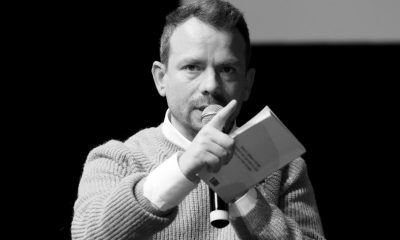EU
UE eliberează 138 de milioane EUR în fonduri umanitare și de dezvoltare pentru regiunea din Africa #LakeChad


The humanitarian crisis in the Africa's Lake Chad basin, affecting parts of Nigeria, Niger, Chad and Cameroon, continues to worsen due to prolonged violence, insecurity and environmental degradation. To help the most vulnerable communities, the Commission has today announced new funding of €138 million combining humanitarian and development assistance. This is part of an overall EU aid package for the region worth €232m.
Speaking today at the High Level Conference on the Lake Chad Region in Berlin, Humanitarian Aid and Crisis Management Commissioner Christos Stylianides said: "The disastrous effects of armed conflict and violence in the Lake Chad basin have had a serious impact in an area already plagued by poverty and the extreme effects of climate change. The EU is committed to continue to help the most vulnerable. Today we are stepping up our humanitarian and development assistance. What is crucial is for all parties to the conflict to ensure full access throughout the region so our aid can reach those in need.
"As the humanitarian situation remains pressing, we also need to help prepare the region to move from conflict to peace – and from fragility to resilience. Our new funding will invest in social services and tackle poverty, environmental degradation and the effects of climate change. We will also boost some of our existing programmes in North East Nigeria by strengthening girls' education and reintegration efforts, as well as health and nutrition services," said International Co-operation and Development Commissioner Neven Mimica.
The package is part of the EU's strategy to better link its humanitarian and development support, with Nigeria and Chad being both pilot countries in this effort. Between 2014 and 2017, the EU provided close to €700m in humanitarian aid and development assistance to the region.
Context
Breakdown of new aid package:
The humanitarian assistance announced today will go to four countries in the region: Nigeria (€47m), Niger (€15m), Chad (€11.8m), and Camerun (€15.1m). Out of this funding, €58.75m was anunțat în iulie 2018 as part of humanitarian assistance provided by the EU to the Sahel countries. Humanitarian assistance will cover the acute food and nutrition needs as well as supporting protection activities, access to basic health care and shelter. The EU will also support livelihoods, helping people rebuild their lives.
The development assistance announced today will also go to the four countries in the region: Nigeria (€74.5m), Niger (€32.2m), Chad (€33.2m), and Cameroon (€2.7m), for a combined amount of €143m, out of which €34.7m was announced earlier this year. The humanitarian situation in the Lake Chad basin is extremely fragile. Over 2.4 million people have been forcibly displaced (including 1.2 million children), while violence and insecurity have also had a negative impact on the lives and livelihoods of more than 17 million people. Around 3.6 million people are in need of emergency food assistance and 440, 000 severely malnourished children across the region need life-saving assistance. The resulting humanitarian crisis is among the largest in the world.
EU development support in the region includes the creation of appropriate security conditions for the return and sustainable reintegration of internally displaced people and refugees; supporting the redeployment of the state for the provision of basic services (health care, food security and education); supporting economic recovery and job creation, notably for the youth.
Mai multe informatii
Trimiteți acest articol:
-

 NATOzile în urmă 5
NATOzile în urmă 5Parlamentarii europeni îi scriu președintelui Biden
-

 Kazahstanzile în urmă 5
Kazahstanzile în urmă 5Vizita lordului Cameron demonstrează importanța Asiei Centrale
-

 Tutunzile în urmă 5
Tutunzile în urmă 5Tobaccogate continuă: cazul intrigant al Dentsu Tracking
-

 Tutunzile în urmă 2
Tutunzile în urmă 2Trecerea de la țigări: cum se câștigă bătălia pentru a nu fuma






















